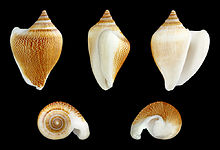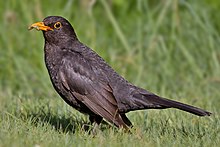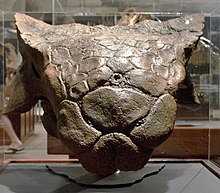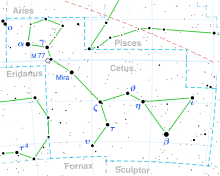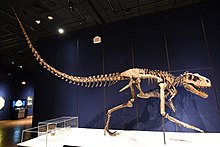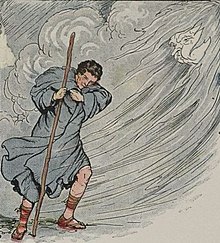Portal:Science
Science portal

Science is a systematic discipline that builds and organises knowledge in the form of testable hypotheses and predictions about the universe. Modern science is typically divided into two or three major branches: the natural sciences (e.g., physics, chemistry, and biology), which study the physical world; and the behavioural sciences (e.g., economics, psychology, and sociology), which study individuals and societies. The formal sciences (e.g., logic, mathematics, and theoretical computer science), which study formal systems governed by axioms and rules, are sometimes described as being sciences as well; however, they are often regarded as a separate field because they rely on deductive reasoning instead of the scientific method or empirical evidence as their main methodology. Applied sciences are disciplines that use scientific knowledge for practical purposes, such as engineering and medicine. (Full article...)
Featured article -
Featured pictures
Vital articles

A chemical element is a chemical substance whose atoms all have the same number of protons. The number of protons is called the atomic number of that element. For example, oxygen has an atomic number of 8, meaning each oxygen atom has 8 protons in its nucleus. Atoms of the same element can have different numbers of neutrons in their nuclei, known as isotopes of the element. Two or more atoms can combine to form molecules. Some elements are formed from molecules of identical atoms, e. g. atoms of hydrogen (H) form diatomic molecules (H2). Chemical compounds are substances made of atoms of different elements; they can have molecular or non-molecular structure. Mixtures are materials containing different chemical substances; that means (in case of molecular substances) that they contain different types of molecules. Atoms of one element can be transformed into atoms of a different element in nuclear reactions, which change an atom's atomic number. (Full article...)
Did you know...
- ... that Ladislav Burlas, a musicologist at the Slovak Academy of Sciences for almost 40 years, wrote more than 150 works during his career?
- ... that Brazilian computer science researcher and internet pioneer Tadao Takahashi negotiated with drug lords to install internet equipment in his country?
- ... that the calling patterns of the Japanese tree frog have been used in wireless network design, furthering an area of science known as swarm intelligence?
- ... that examples of artificial planets in science fiction include Riverworld, the Well World, and the Death Star?
- ... that Science Park station was built despite the objections of the operating agency?
- ... that Mary Clutter used her directorial position at the National Science Foundation to require scientific conferences to include women speakers when presenting research done by them?
Get involved
| This portal needs to be updated. Please help update this portal to reflect recent events or newly available information. Relevant discussion may be found on the talk page. |

|

|
Science News
- 19 December 2024 – Mexican drug war
- Two soldiers are killed after an explosion caused by a improvised landmine at a drug laboratory in Michoacán, Mexico. Three days ago, two other soldiers were killed and three more injured in Michoacán during a similiar incident. (AP)
- 12 December 2024 –
- Edith Heard, biologist specialist of epigenetics and director-general of the European Molecular Biology Laboratory, is awarded the CNRS Gold Medal, France's highest research award. (CNRS - Le Journal)
- 21 November 2024 –
- The European Southern Observatory announces that its astronomers in Chile capture the first close-up image of a star outside the Milky Way. (The New York Times)
- 20 November 2024 – Discoveries of exoplanets
- In a study published by the Nature journal, astronomers announce the discovery of IRAS 04125+2902 b, a newborn exoplanet. The discovery was made by Madyson Barber, a graduate student at the University of North Carolina at Chapel Hill. (Nature) (ABC News)
- 5 November 2024 –
- Researchers at Kyoto University in Japan launch LignoSat, the world's first wooden satellite constructed without screws or glue, into space. It will orbit Earth for six months. (DW)
- 10 October 2024 –
- In its annual Living Planet report, the World Wildlife Fund estimates that wild populations of animal species have decreased over 70% since 1970, with some high-biodiversity areas seeing up to 95% declines. (DW)






